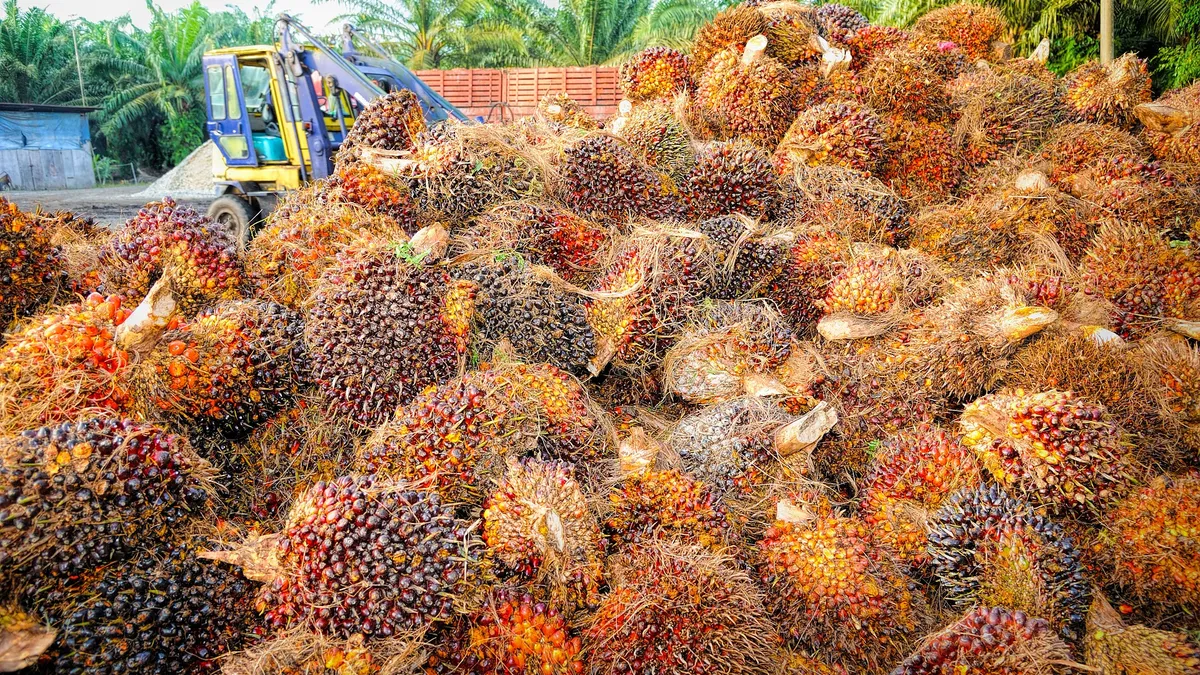Dive Brief:
- Nestlé has vowed to reach 100% "responsibly sourced" palm oil by 2020 and is using satellite technology to monitor suppliers and blacklist violators. It will make the list of compliant and noncompliant suppliers public in March 2019, according to Swissinfo.ch.
- Nestlé has closed a joint venture with Indonesia's largest palm oil supplier IndoFood that began in 2016, as the Indonesian firm faces allegations of deforestation and human rights violations, reported the Chartered Institute of Procurement and Supply.
- PepsiCo similarly announced it would no longer be sourcing palm oil from a subsidiary of Indofood, with which PepsiCo also has a joint venture since 2017.
Dive Insight:
Palm oil remains one of the most controversial agricultural products in the food system because rainforests are often cleared and burned to plant oil palms, destroying habitat for wildlife such as tigers, elephants and orangutans — not to mention indigenous human populations.
By publicizing the list of suppliers, good and bad, Nestlé is attempting to provide more transparency around its attempt to rid the palm oil supply chain of these practices. However, major corporate consumers of palm oil don't all agree on an approach to meet the goal of ending deforestation and the accompanying environmental ills.
In fact, Nestlé was recently suspended from the Round Table on Responsible Palm Oil (RSPO), stemming from disagreements in how sustainable and humane palm oil sourcing should be verified.
To boil the issues down: Nestlé wants to verify the practices of its own suppliers and maintain RSPO membership, while the RSPO wants to certify all responsible suppliers, requiring firms to keep separate approved and unapproved oil and eventually reach 100% RSPO-certified sourcing. Nestlé was readmitted to the organization in July, but there remain some disagreements in methods going forward.
In June, thanks to the company's relatively new satellite monitoring capability, Nestlé blacklisted 10 palm oil suppliers. The Swiss firm currently claims around 58% of its palm oil supply chain is free of deforestation.














